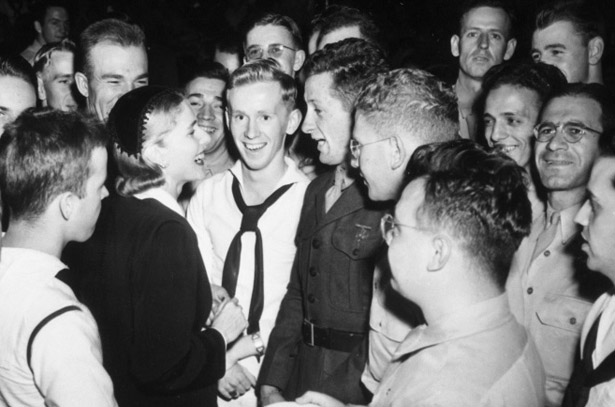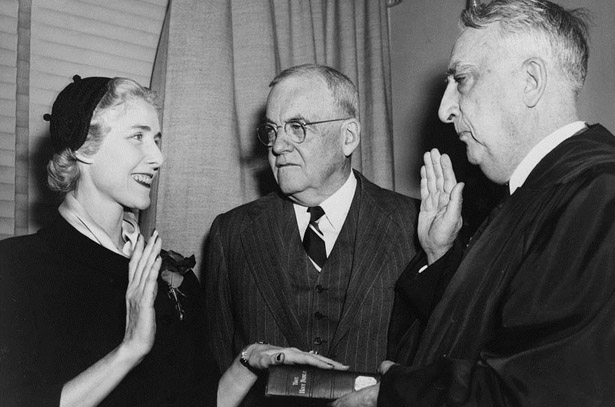
by Elizabeth Campbell
July 4th is a holiday centered on American patriotism and exceptionalism. Almost every American celebrates the day the greatest country that has ever existed was born. We are so proud of our heritage, as we should be. Our founding documents have lasted through trying times and were the first ever written documents guaranteeing civil liberties; our changes from one president to another don’t end in riots on the streets or wars; and we have a voluntary army that is proud to serve this great nation. American exceptionalism is continuing to hold the values and truths of our founding documents to be true, understanding that our past mistakes are the imperfections of man, and countering these flaws with exceptional cures.
Recently, however, it seems that the importance of understanding American exceptionalism has been demonized and misrepresented. Instead of priding ourselves in the fact that our Constitution has barely changed over time, leftists claim it is outdated and needs to be modernized. Instead of honoring the men and women who have given so much to make this country great and free, too many honor those who have over-regulated our lives and diminished our freedom.
A woman that gets very little recognition for her contributions to making America such an exceptional country, and promoting those freedoms and values which make America so exceptional abroad, is Mrs. Clare Boothe Luce.
Clare Boothe Luce was a journalist during World War Two for Life magazine, where she traveled to the front lines for first hand reports of the war. Bravely risking her safety, Clare was passionate about the allies and what they could do better to win the war. Clare faced bombing raids in Europe and the Far East and even house arrest in Trinidad when allied forces thought her drafted article about unpreparedness in Libya was too accurate.

Clare Boothe Luce boosting troop morale on the European front in 1944
After a delayed flight, Clare decided to begin writing her accounts of the Allies in the war in the Middle East, and how her observations of their strategy led her to believe that something had to change for the Allies to win. Guards asked to see her manuscript, and, after a bit of resistance, she handed it over to them. After reading it, they promptly placed her under house arrest in Trinidad until she was cleared to fly home, without her manuscript. Her scrupulous observations in her writings went on to influence Winston Churchill’s military policy in the Middle East.
Today, news on wars seem to be short clips, pictures, and few personal accounts of what the current situation is truly like. There never seems to be stories on the weaknesses of the US strategy that come from first-hand accounts, or stories that influence great political leaders, like Clare’s did. Instead, our current events news have narrowed down to highly edited video clips making the US appear to be in the wrong on all fronts, and demonizing instead of supporting their efforts abroad in war.
We could all learn a lesson from Clare’s bravery and tenacity. She took risks, she stood up for her beliefs, she did not let her voice be stifled, and it led to changes. Clare experienced the Nazi invasion of Brussels, interviewed General MacArthur, and produced stories around the world that were written while she was in perilous situations. She endangered herself because she thought her stories were what the American and allied people needed to endure the war, not for the popularity of the issue, or to persuade people to follow “her side.” She realized how exceptional America and America’s people truly were, and made it a purpose to spread this idea.
Clare, a brave woman, steadfast in her beliefs, strong-willed, and good natured, influenced the minds of many from her time at Vanity Fair and Life, to her tenure as a Representative for Connecticut, and her assignment as ambassador to Italy, making her the first woman assigned to a major ambassadorial post. However, her name is rarely mentioned, if mentioned at all in textbooks or class readings. Another freedom fighter who promoted American exceptionalism lost in the highlights of those who chose to regulate who is free instead.

Clare being sworn in as Ambassador to Italy
Observing Clare’s time in foreign policy would undoubtedly influence many today for the better. She was kind, respectful, and openly religious. Her work always stemmed from her passion, not from desire of promotion or fame. She did not throw her writings, opinions, and observations around, demanding that they be listened to or followed; she influenced people because her accounts were factual and persuasive.
In today’s world of national security and foreign policy, it is important to remember these qualities. We need to eliminate political correctness and report the facts, full reports and analyses of war strategies, like the one Clare wrote that influenced Churchill. She respected those fighting for freedom; she did not shame them for their actions. Most of all, she was proud of the liberty that the United States provided for their citizens, and wanted to work to spread those ideals globally.
Clare Boothe Luce took her love of freedom and disdain for communism with her to a tumultuous Italy to influence their leaders and garnered great respect from their people. Her admirable qualities and belief in American exceptionalism are what policy makers, foreign policy advisors, politicians, and national security specialists should strive to reach and reinstate in today’s unfortunate political turmoil.
So as we celebrate the birth of this great country, let us not forget the men and women who have sacrificed and made their sole purpose in life to defend the freedoms that this country was founded upon. Most of of all, let us not forget the bravery Clare showed during her career, and her efforts to promote freedom abroad, proving how and why America is an exceptional country.
Elizabeth Campbell is a 2016 summer intern.
